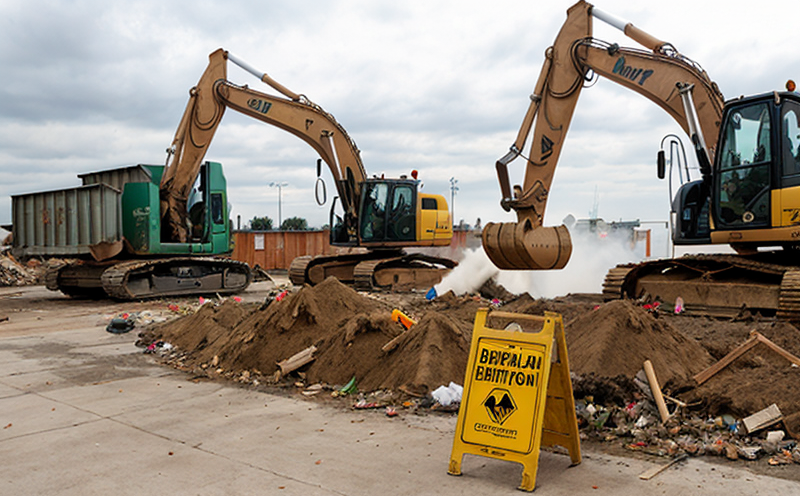EN 16222 Lithium in Construction Waste
The European standard EN 16222 specifies methods to determine the lithium content in construction waste. This critical test is essential for ensuring compliance with environmental regulations and sustainable resource management practices within the construction sector.
Construction and demolition waste, a significant component of urban solid waste, often contains valuable materials that can be recovered and reused. Lithium, an important element used in batteries, has gained prominence due to its role in energy storage solutions like electric vehicles (EVs) and renewable energy systems. Accurate determination of lithium content helps optimize recycling processes, thereby reducing environmental impact.
The standard outlines various analytical techniques suitable for different types of construction waste materials such as concrete, mortar, bricks, and other rubble. Sample preparation plays a crucial role in these tests; it involves thorough grinding to ensure homogeneity across the sample set. The choice of method depends on factors like particle size distribution and type of waste material.
For instance, when dealing with concrete containing lithium-bearing aggregates, specific precautions must be taken during crushing to avoid contamination from other metals present in the aggregate mix. Standardization ensures consistent results regardless of who performs the analysis. This standard also covers issues related to sample preservation post-collection until final testing.
The importance of this test cannot be overstated given the growing demand for sustainable construction practices globally. Compliance with EN 16222 not only aids in meeting regulatory requirements but also enhances corporate social responsibility efforts by demonstrating commitment towards environmental stewardship.
- Customer Impact and Satisfaction:
- Ensures accurate quantification of lithium content, leading to better resource recovery.
- Promotes sustainable construction practices by identifying valuable materials for recycling.
Eurolab Advantages
EuroLab offers unparalleled expertise in conducting EN 16222 tests on construction waste. Our team of highly qualified professionals uses state-of-the-art equipment to ensure precise and reliable results every time.
We have extensive experience working with various types of construction materials, including those containing lithium-bearing components. With our advanced analytical facilities, we can handle complex samples effectively while maintaining high accuracy standards throughout the entire testing process.
Our services extend beyond just providing test results; we also offer comprehensive consultancy support to help clients understand their data better and implement effective recycling strategies based on it.
- Customer Impact and Satisfaction:
- Accurate and reliable testing leading to informed decision-making.
- Supporting sustainable waste management practices through precise analysis.
Frequently Asked Questions
International Acceptance and Recognition
The European standard EN 16222 is widely accepted across Europe and beyond, reflecting its importance in promoting sustainable waste management practices. Its adoption ensures consistent quality assurance standards when assessing lithium content in construction waste globally.
The method described in this standard has been recognized for its reliability by numerous international bodies involved in environmental protection and resource recovery initiatives. Compliance with EN 16222 is thus seen as a benchmark for excellence in handling construction waste responsibly.





